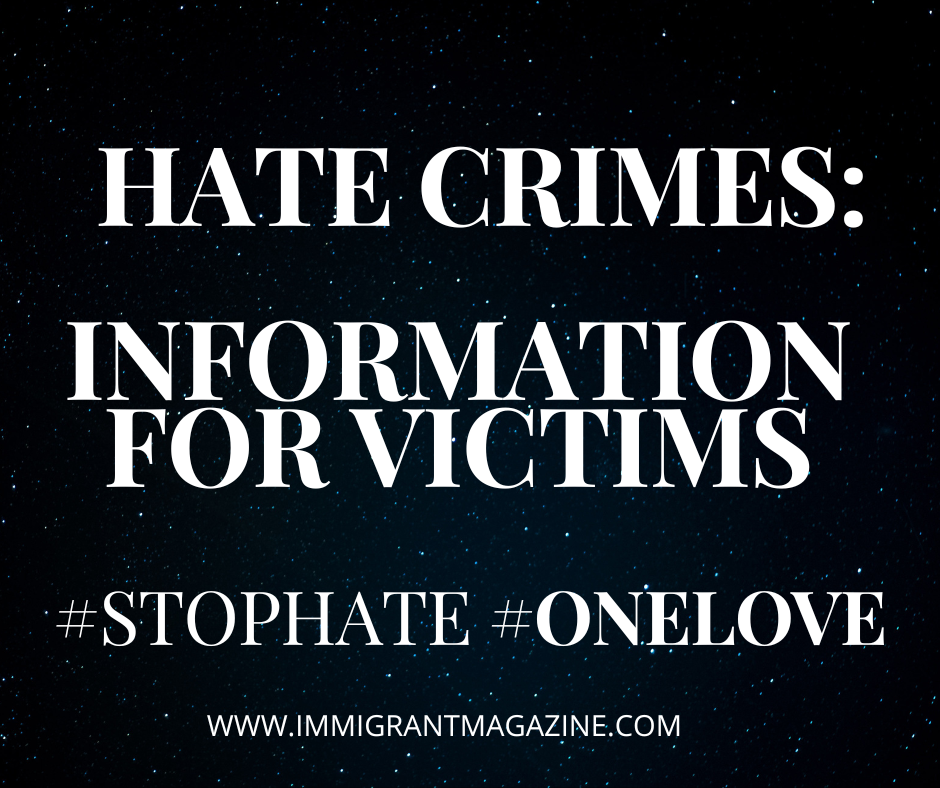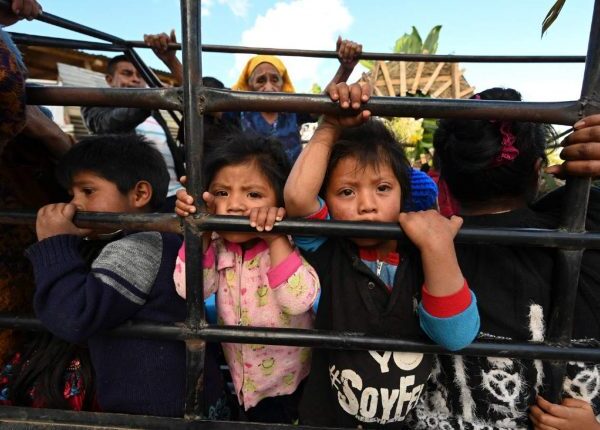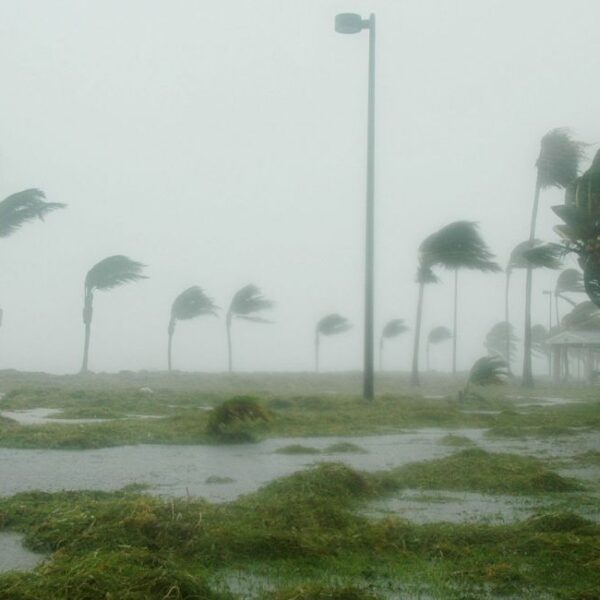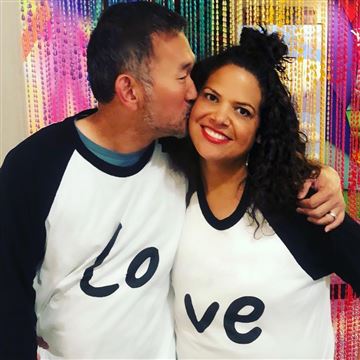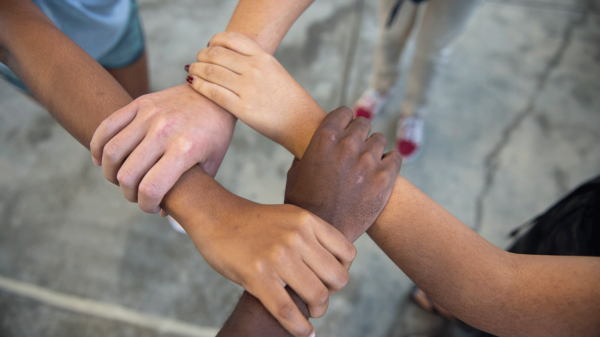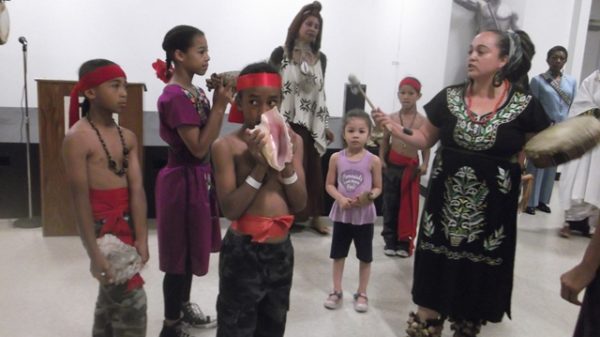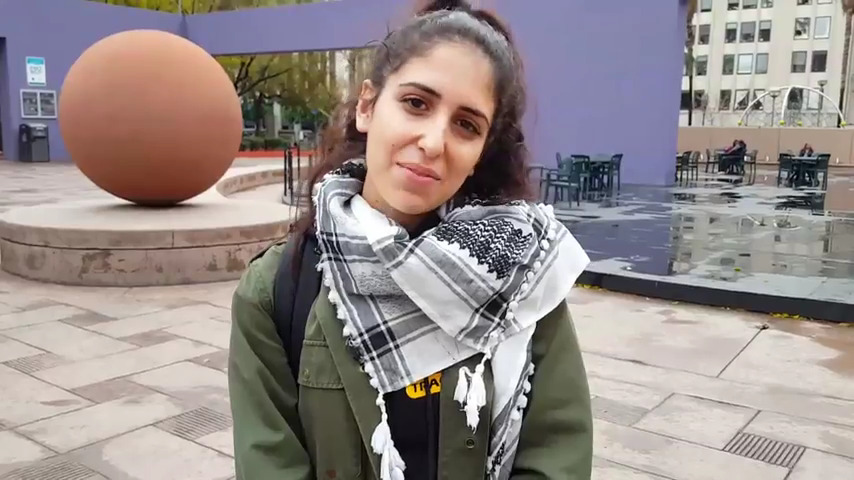Empowering Hate Crime Victims: Where to Turn for Support and Action Against Discrimination
Magazine, The Immigrant Experience, By Magha Ken
The recent release of a report by the California Department of Justice revealing a 20% increase in reported hate crimes brings both progress and challenges to the forefront in the fight against hate and discrimination. While the rise in reporting signifies positive strides, a significant gap persists between the actual occurrence of hate crimes and their official documentation. This article delves into the complex reasons behind immigrants’ hesitancy to report hate crimes. By examining insights from community organizations and government agencies and exploring the distinctive challenges faced by immigrant groups like Black immigrants, Asians, Africans, Latinos, and Middle Easterners, we gain a deeper understanding of the intricate factors contributing to this issue. These insights provide valuable guidance for advancing anti-hate initiatives such as California vs Hate.
Barriers to Reporting Hate Crimes
The hesitancy to report hate crimes encompasses a spectrum of multifaceted barriers rooted in societal and systemic factors:
- Distrust of Law Enforcement: Communities historically marginalized by law enforcement may be hesitant to involve authorities due to deep-seated mistrust.
- Fear of Retaliation: The potential for reprisals from perpetrators or associates can deter victims from reporting incidents.
- Immigration Consequences: Undocumented immigrants may fear drawing attention to their status, which could lead to potential deportation.
- Confusion and Awareness Gaps: Limited understanding of reporting mechanisms and uncertainty about identifying hate crimes can hinder victims from seeking help.
- Language Barriers: Insufficient language support can hinder effective communication, hindering access to support services.
- Lack of Trust in Service Providers: Historical disparities and bias in service provision can erode trust, discouraging victims from seeking assistance.
Immigrant Group Challenges
1. Black Immigrants: Intersectional challenges arise for Black immigrants due to the convergence of racism and xenophobia, cultural stigmatization, and fears of deportation, compounding their hesitancy to report hate crimes.
2. Asians: Language barriers, cultural stigma, and concerns about immigration status contribute to the hesitancy among Asian immigrants to report hate crimes.
3. Africans and Caribbean Immigrants: Fears of cultural misunderstandings, stereotypes, and potential consequences for immigration status compound hesitancy among these communities in reporting incidents.
4. Latinos: The dilemma of fearing immigration consequences and law enforcement involvement adds layers of complexity to reporting hate crimes among Latino immigrants.
5. Middle Easterners: Cultural bias, language barriers, and apprehensions about immigration status deter Middle Eastern immigrants from reporting incidents.
Addressing Immigrant Hesitancy
To address the barriers to reporting hate crimes among diverse immigrant communities, a multifaceted approach is crucial:
- Tailored Initiatives: Anti-hate efforts should be designed to address the unique experiences of each immigrant group, ensuring cultural sensitivity.
- Language Access: Providing resources in multiple languages enhances accessibility and bridges communication gaps.
- Community Partnerships: Collaborating with community organizations builds trust, facilitating a safe environment for reporting and support.
- Education and Outreach: Raising awareness about hate crime reporting options and available support services empowers immigrants to come forward.
- Anonymous Reporting Channels: Offering anonymous reporting avenues encourages immigrants to share their experiences without fearing retribution.
RESOURCES
If you are a victim of hate, there are various organizations and resources available to provide support and guidance. Here are some options to consider reaching out to:
- California vs Hate: A comprehensive initiative focused on addressing hate incidents and providing support. They offer accessible reporting channels, culturally competent support, and resources for victims. Website: https://cavshate.org/
- Local Law Enforcement: If you feel comfortable, you can report hate crimes to your local law enforcement agency. They are responsible for investigating and addressing such incidents.
- Community Organizations: Reach out to community organizations that specialize in providing assistance to specific immigrant or minority groups. They often offer resources, support, and advocacy tailored to your needs.
- Anti-Discrimination Agencies: Many regions have agencies dedicated to combating discrimination and hate crimes. They can provide information, support, and resources for reporting incidents.
- Nonprofit Organizations: Numerous nonprofit organizations work to combat hate and discrimination. They may offer support services, legal assistance, and guidance for victims.
- Hotlines: There are hotlines available that provide immediate assistance and guidance for victims of hate incidents. These hotlines can connect you with professionals who can offer advice and resources. ( See below for some)
- Legal Aid Organizations: If you believe your rights have been violated, legal aid organizations can offer information about your options and potential legal recourse.
- Educational Institutions: If you’re a student or affiliated with an educational institution, they may have resources or support services available to address hate incidents.
- Online Resources: Numerous websites and platforms offer information, resources, and advice on how to respond to hate incidents and seek help. See below:
African-Americans & Black Immigrants
National Association for the Advancement of Colored People (NAACP)
The National Association for the Advancement of Colored People (NAACP) was formed in 1909 in New York City. The Association has grown to over 2,200 chapters nationwide, including branches in Germany and Japan, and has over 500,000 members. The principal objective of the NAACP is to ensure the political, educational, social, and economic equality of minority group citizens among the citizens of the United States. The NAACP is committed to achievement through non-violence and relies upon the press, the petition, the ballot, and the courts.
The National Urban League is a nonprofit, nonpartisan community-based agency headquartered in New York City with 113 affiliates in 34 states and the District of Columbia. Its research department, located in Washington, D.C., recently conducted a study entitled “Interracial Violence and Community Conflict: A Study in Symbolic and Competitive Racism.” This study had the main objective of analyzing the interrelationships among socio-economic and demographic characteristics and the incidence of interracial violence and conflict.
American-Arab
American-Arab Anti-Discrimination Committee
A nonsectarian, nonpartisan service organization committed to defending the rights and promoting the heritage of Arab Americans. ADC offers advocacy in cases of defamation, legal action in cases of discrimination, and counseling in matters of immigration. ADC has published a series of reports on anti-Arab hate crimes.
The Council on American-Islamic Relations (CAIR) https://ca.cair.com/losangeles/
The Council on American-Islamic Relations (CAIR) is a nonprofit 501(c)(3), grassroots civil rights and advocacy group. CAIR is America’s largest Islamic civil liberties group, with regional offices nationwide. CAIR’s mission is to enhance the understanding of Islam, protect civil liberties, promote justice, and empower American Muslims. CAIR-Los Angeles is committed to assisting American Muslims who have been the victims of hate crimes or hate incidents.
CAIR Los Angeles
2180 W. Crescent Ave., Suite F
Anaheim, CA 92801
714-776-1177
https://ca.cair.com/losangeles/what-we-do/legal-services/report-an-incident/ (link to report an incident)
Hispanics
Mexican American Legal Defense and Educational Fund (MALDEF)
Mexican-American Legal Defense Fund
213-629-2512
634 S Spring Street #1100, Los Angeles CA 90014
https://www.maldef.org/
Central American Resource Center
2845 W. 7th St.
Los Angeles, CA 90005
(213)-385-7800
16501 Sherman Way Suite 220
Van Nuys, CA, 91406
213-385-7800 ext. 122
https://www.carecen-la.org/
National Association of Latino Elected Officials
1122 W. Washington Blvd., Third Floor
Los Angeles, California 90015
Tel: (213) 747-7606
Fax: (213) 747-7664
https://naleo.org/
Mexican-American Opportunity Foundation
401 N. Garfield Ave., Montebello, CA 90640
Phone: (323) 890-9600 / Fax: (323) 890-9637
http://www.maof.org/
Mexican-American Bar Association
714 West Olympic Boulevard,
Suite 450, Los Angeles CA, 90015
T (213) 749-2889
http://mabaattorneys.com
A national civil rights organization founded in 1968 to promote and protect civil rights, and specifically, to conduct litigation and advocacy work on behalf of Hispanic Americans. MALDEF primarily focuses on Hispanic immigration issues. National headquarters are located in Los Angeles; regional offices are in San Francisco, San Diego, Chicago, and Washington, D.C.
NCLR conducts policy analysis and advocacy activities in the civil rights arena in order to promote and protect equality of opportunity in education, employment, housing, public services, and public accommodations for all Americans.
Gay and Lesbians
National Gay and Lesbian Task Force (NGLTF)
The National Gay and Lesbian Task Force (NGLTF) is a civil rights organization dedicated to building a movement to promote freedom and full equality for all lesbians and gay men. Its Anti-Violence Project was initiated to promote an appropriate official response to anti-gay violence, improve the treatment of lesbians and gay men by the criminal justice system, and assist local communities in organizing against prejudice and violence. NGLTF reports annually on antigay/lesbian violence, victimization, and defamation. The National Gay & Lesbian Task Force fights hate crime and monitors attacks on civil liberties.
Parents and Friends of Lesbians and Gays (PFLAG)
Provides support for families of Gays and Lesbians with hundreds of local chapters worldwide.
Anti-Violence Project
LA Gay and Lesbian Center
800-373-2227, toll-free number
323-993-7673, local number
The LA Gay & Lesbian Center Anti-Violence Project provides advocacy, counseling, reporting and survivor assistance services for anyone who has been harassed, physically threatened or harmed because of “actual or perceived” (ie., “sexual orientation gender identity and/or HIV status.
Jewish
American Jewish Committee (AJC)
Created to protect the rights of Jews the world over and to combat bigotry and anti-Semitism. The AJC has published “What to Do When the Militia Comes to Town”, “Skinheads: Who They Are and What to Do When They Come to Town” and “Bigotry on Campus: A Planned Response.”
The Anti-Defamation League (ADL) is a human relations organization with 31 regional offices across the country. ADL is dedicated to promoting intergroup cooperation and interfaith understanding. Over the past decade, ADL has become a leading resource in crafting responses to hate violence, including model hate crime legislation, a 17-minute hate crime training video, a handbook of existing hate crime policies and procedures at both large and small police departments, and a general human relations training program for law enforcement designed to examine the impact of discrimination, while promoting better cultural awareness and increased appreciation for diversity.
National Conference of Christians and Jews (NCCJ)
The National Conference of Christians and Jews (NCCJ) was founded in 1927 to combat racism and religious bigotry, to improve communications between different American communities, and to “build bridges of mutual respect.” NCCJ uses a combination of methods to achieve its goals including education, leadership, professional intervention with trained human relations specialists, group meetings, and group dialogues.
Yad Vashem: A site dedicated to the study and remembrance of the Holocaust
Simon Wiesenthal Center/Museum of Tolerance
9760 West Pico Boulevard
Los Angeles, California 90035
In November 1977, the Simon Wiesenthal Center was founded. Today, together with its world-renowned Museum of Tolerance, it is a 400,000-member strong international center for Holocaust remembrance, the defense of human rights, and the Jewish people. With offices throughout the world, the Wiesenthal Center carries on the continuing fight against bigotry and antisemitism and pursues an active agenda of related contemporary issues.
American Citizens for Justice, Inc.
Seeks to eradicate racism, harassment, and discrimination against Asian Pacific Americans and other minority and ethnic groups through legal consultation, monitoring anti-Asian violence, advocacy, community education, and the Vincent Chin Justice scholarship.
Asian Pacific American Legal Center of Southern California (APALC)
1145 Wilshire Boulevard, 2nd Floor
Los Angeles, CA 90017
213-977-7500
213-977-7595 FAX
APALC is working with the City of Los Angeles to improve its response to crimes of hate violence. Through the Los Angeles City Human Relations Commission, APALC has participated in the implementation of the Hate Violence Monitoring Resources Order of the Los Angeles Police Department. The program will streamline the tracking of hate violence and will train officers who will be assigned to investigate and properly follow up on hate violence cases.
Organized to serve and educate refugees on their rights in America. Its basic functions are educational programs, refugee funding, and community empowerment; some of the Council’s affiliates also address hate crimes.
Asian American Legal Defense & Education Fund
Community education, legal counseling, and advocacy on behalf of victims of anti-Asian violence.
Committee Against Anti-Asian Violence (CAAAV)
Founded in 1986 to organize Asian communities in the New York City area to combat racist violence. Through community education and organizing efforts, CAAAV strives to develop leadership within the Asian communities to speak out and effect change in public policies.
Japanese American Citizens League (JACL)
A national nonprofit, educational, human, and civil rights organization representing Americans of Japanese ancestry. JACL is headquartered in San Francisco and has 113 chapters, 5 regional offices, and an advocacy office in Washington, D.C. JACL monitors incidents of anti-Asian violence, provides assistance in specific cases, offers a handbook on responding to anti-Asian violence, and participates in seminars on hate crimes.
Organization of Chinese Americans (OCA)
A national nonprofit, nonpartisan civic organization advocating for the welfare of Chinese Americans. OCA has an internal task force on anti-Asian violence. It monitors court cases and is involved with specific cases by acting as legal counsel and providing financial resources. OCA materials include a quarterly newsletter, which offers updates on cases, and a new major publication on hate crimes.
In conclusion, the hesitancy to report hate crimes among immigrant communities is a complex challenge influenced by a range of factors, from historical context to cultural nuances. Recognizing and addressing these barriers is pivotal to ensuring that all voices are heard and supported. By embracing the unique challenges faced by various immigrant groups, anti-hate initiatives can foster an environment where reporting is not only encouraged but empowers victims to stand against hate. Through collaboration, education, and cultural awareness, we can work towards a society that upholds the dignity, safety, and equality of every individual, regardless of their background.
Remember that your safety and well-being are paramount. Choose the option that you feel most comfortable with, and don’t hesitate to seek support from multiple sources if needed.
#ImmigrantHesitancy #HateCrimeReporting #BreakingTheSilence #InclusiveSafety #DiverseChallenges #AntiHateInitiatives #CommunityCollaboration #EmpowermentThroughReporting #CulturalSensitivity #BridgeTheGap #RaiseAwareness #EqualityForAll #FightingDiscrimination #VoicesMatter #EmbraceDiversity #EndHateCrimes #SupportingImmigrantCommunities #InclusivityInReporting #StrengthInUnity #UnveilTheTruth
“This grant is provided by the California Black Media through work from the State of California Library Stop The Hate grant campaign”

